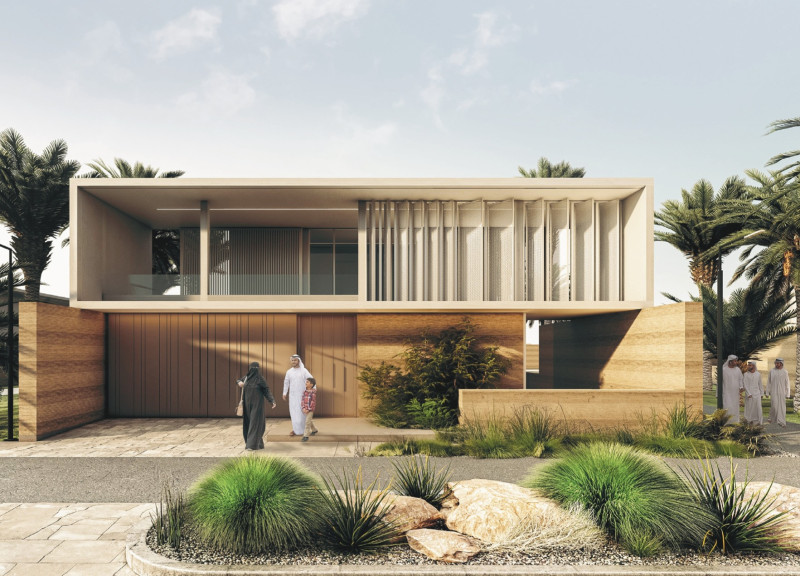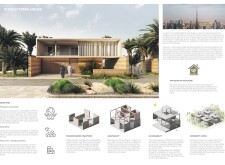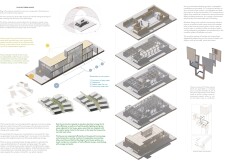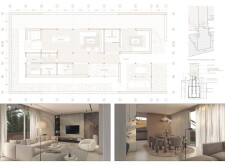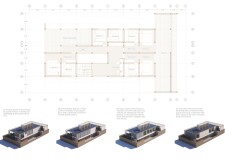5 key facts about this project
## Analytical Report on the Plug-in Terra House Project
### Overview
Located in Dubai, United Arab Emirates, the Plug-in Terra House introduces a modular design that addresses ecological, social, and economic sustainability within a rapidly developing urban environment. This project aims to integrate traditional aspects of UAE culture with contemporary living requirements, creating a residential unit that adapts to the needs of its occupants while being mindful of the surrounding ecosystem.
### Structural Strategy and Material Innovation
The structural design employs advanced 3D printing technologies alongside local, sustainable materials. Notable components include 3D printed earth sourced from the immediate environment, which reduces transportation emissions and enhances harmony with local geology. Cross-laminated timber (CLT) serves as a lightweight yet robust option that promotes fire safety and thermal efficiency. The incorporation of high-efficiency solar panels on the roof maximizes energy generation, further lessening reliance on non-renewable resources. Coupled with water-resistant foundations designed to withstand Dubai's climate, the project ensures long-term durability and performance.
### Sustainability and Community Interaction
Sustainability is a central theme, supported by the design’s renewable energy strategies and efficient water management systems. Photovoltaic panels generate clean energy for household operations, while a greywater recycling system enables the reuse of water for gardening, illustrating a commitment to circular water practices. The Plug-in Terra House concept also fosters community interaction by enabling energy and water sharing among neighboring units, thus promoting collective resilience and resource efficiency. Modular construction facilitates adaptability to accommodate shifting family dynamics and environmental conditions, thereby ensuring the enduring relevance of the dwelling in a modern context.


